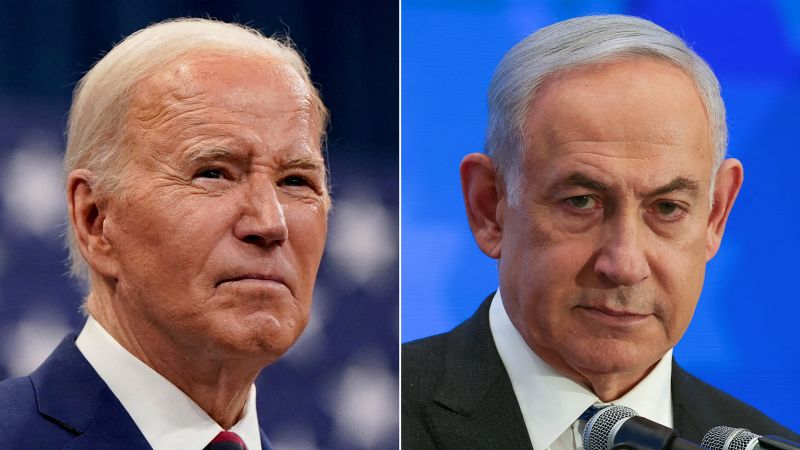President Joe Biden is scheduled to have a call with Israeli Prime Minister Benjamin Netanyahu, a call that highlights a contradiction in US policy in the war in Gaza. While Biden is expressing frustration over Israeli conduct, the US continues to offer staunch support to Israel, even as the White House demands changes to Israeli procedures to protect civilians. The call also comes amid concerns that Israel’s actions could escalate regional tensions and spark a larger conflict that Biden has been working to avoid. Both leaders are under intense domestic pressure, with Biden needing the war to end to appease progressives threatening his political coalition, while Netanyahu may need to prolong it to avoid losing elections.
Despite Biden’s tough rhetoric and frustration with Netanyahu, US policy remains in support of Israel’s response to Hamas terror attacks. Calls for a temporary ceasefire and the release of Israeli hostages have not produced significant outcomes, and the killings of aid workers have further complicated the situation. The disconnect in US policy has drawn criticism, with some questioning the use of US-made weapons in civilian deaths in Gaza. The lack of impact from US signals of frustration with Israel raises questions about Biden’s leverage over Netanyahu or his willingness to exert it.
The political landscape is shifting for both leaders, with Biden facing backlash from Democratic and Palestinian American groups for his handling of the conflict, while Netanyahu’s coalition is under pressure and facing calls for new elections. Israel’s growing isolation and swift admission of fault in the deaths of aid workers have strained its relationships with other nations, while Biden’s responses to domestic criticism risk further erosion of his political support. The recent attack in Damascus, blamed on Israel and affecting Iran, complicates the situation further and raises concerns about potential escalations and broader regional conflict.
The risk of wider conflict involving Iran and Israel adds pressure on Biden, who has worked to avoid such scenarios since taking office. Concerns over potential responses from Iran, including attacks on Americans through proxy groups, highlight the fragile situation in the region. The ongoing challenges test Biden’s ability to navigate the complexities of Middle East politics while managing domestic political pressures and international expectations. Netanyahu’s actions and policies also contribute to the uncertainty and risks in the region, further complicating efforts to de-escalate tensions and prevent wider conflict.
The call between Biden and Netanyahu represents a critical moment for both leaders and the broader Middle East. The dynamics of the conflict, the delicate balance of power between the US and Israel, and the potential for wider regional implications underscore the high stakes involved. As both leaders face internal and external pressures, their ability to navigate these challenges and find a path towards resolution will have significant implications for their political futures and the stability of the region. The complexities of US policy, the evolving dynamics of the conflict, and the risks of further escalation highlight the urgent need for diplomatic efforts and strategic decision-making to address the crisis and prevent further destabilization in the region.


